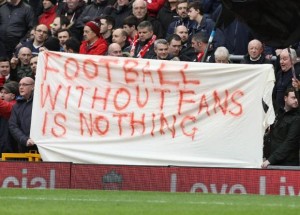
A major concern before the Court was the effect on class-action certifications and the issue of mootness.(TRNS) — In the Supreme Court’s first oral argument of the day on Wednesday, the Justices heard arguments on Article III of the U.S. Constitution regarding mootness.
Article III sets forth the requirements for hearing cases in federal courts, among those justiciability. Justiciability involves the ability of the case to come to a complete end. Within justiciability, mootness is a prime component. Mootness occurs when the injury is no longer present and there are no adverse parties. Adverseness was the true issue before the Court on Wednesday.
In California, Jose Gomez received unwanted text messages from a subcontractor hired by a company (Campbell-Ewald Co.) who in turn was hired by the U.S. Navy for recruiting purposes.
As a result, Gomez sued Campbell-Ewald under the Telephone Consumer Protection Act (TCPA) of 1991. The TCPA bans “any person” from using an automated dialing system from calling any cellphone user without consent or outside of an emergency. The Federal Communications Commission (FCC), in turn, applied this to text messages and voice calls.
The FCC regulation also gave citizens a private right of action to sue on their own behalf for violations of the act. The private right gave the plaintiff the right to recover at least $500 in damages for each violation.
Crafted as a class-action lawsuit, Gomez’s suit proceeded through the federal courts. Gomez wanted payment for injuries incurred, a permanent injunction, attorneys’ fees, and class-action status. Campbell-Ewald countered with an offer of settlement for approximately $1,500 and a permanent injunction. Not satisfied, Gomez let the offer expire. Upon expiring, Campbell-Ewald moved to have the case dismissed because the case was moot.
The district court judge did not agree, but did dismiss the case on the grounds the Campbell-Ewald had derivative immunity, meaning as it was working on behalf of the federal government, it is immune from suits of this nature. The Ninth Circuit Court of Appeals reversed citing error by the district court in granting derivative immunity. The court also rejected Campbell-Ewald’s mootness arguments.
Gregory Garre, advocating for Campbell-Ewald, maintained that because Gomez was offered everything he was entitled to under the TCPA in the settlement offer, the case should be moot. Garre argued Gomez received “complete relief” through Campbell-Ewald’s offer. He asserted even though Campbell-Ewald did not give everything Gomez asked for (attorneys’ fees and class certification) but only what he was entitled to (damages and a permanent injunction), Campbell-Ewald had satisfied its obligation and the controversy was over.
Justices Kagan and Sotomayor did not agree. Justice Kagan argued that because the plaintiff had asked for certain items and Campbell-Ewald only agree to what it thought Gomez was entitled, it left the door open for the claims to be adjudicated. She argued “there’s no history of a tender offer mooting a case.”
Justice Sotomayor believed the arguments should be done in the context of a motion for summary judgment rather than for mootness. Under the Federal Rules of Civil Procedure 56, a party can ask the court to find and make certain determinations of fact and rule a particular way based on the facts and law under summary judgment.
Jonathan Mitchell, arguing on behalf of Gomez, said, “A mere offer of complete relief doesn’t moot a case.” His position was that plaintiffs needed the judicial determination to enforce any type of settlement judgment.
A major concern before the Court was the effect on class-action certifications. At times dispensed of during the hypothetical questions posed from the Bench, the Justices seemed concerned on the effect this might have in those situations. What if defendants could “pick off” each named plaintiff? In a prior case heard by The Court in 2012, Genesis Healthcare v. Symczyk, The Court said potential class certification wasn’t a sufficient concern when deciding if there is a potential stake in the litigation.
Anthony Yang, Assistant to the U.S. Solicitor General, argued on behalf of the federal government for Gomez. Yang’s argument approached the matter that for any determination, it would be a merits based determination on the facts of the case and as a result a court order of mootness would not be an appropriate remedy under the Rules of Federal Civil Procedure.
What the Court is likely to do is never really known, but from the arguments of law and procedure, Gomez might get his $1,500 and a court order making him accept it. Will he get the attorneys’ fees and class action certification? Only time will tell.


